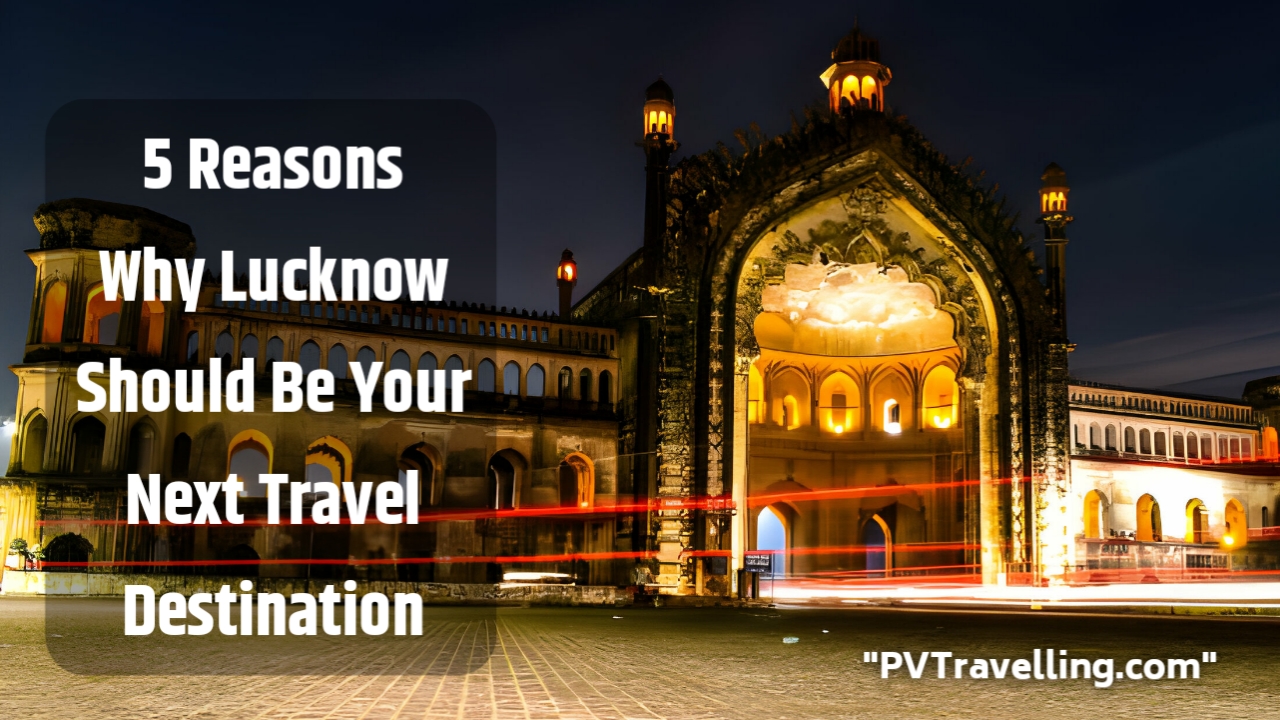Have you ever dreamt of getting lost in a city brimming with rich history, mouthwatering cuisine, and captivating culture? Look no further than Lucknow, the captivating capital of Uttar Pradesh, India. Often referred to as the “City of Nawabs,” Lucknow offers a unique blend of Mughal grandeur, Awadhi hospitality, and vibrant energy that will leave you mesmerized.
But why choose Lucknow for your next travel adventure? Here are 5 compelling reasons that will have you packing your bags in no time:
1. A Journey Through Nawabi Grandeur
Lucknow boasts a rich tapestry of historical sites that transport you back to an era of opulence and power. Immerse yourself in the majestic Bara Imambara, the largest Shia mosque in India, and marvel at its intricate labyrinthine passageways (Bhul Bhulaiya). Explore the architectural brilliance of the Chhota Imambara, a shimmering white structure adorned with intricate stucco work.
Step back in time at the British Residency, a sprawling complex that witnessed a pivotal chapter in Indian history. These historical gems not only showcase Lucknow’s architectural legacy, but also offer a glimpse into the lives of the Nawabs (governors) who once ruled the city.
2. A Culinary Paradise for Foodies
Lucknow is a haven for food lovers, famed for its delectable Awadhi cuisine. This royal cuisine, developed by the Nawabs’ chefs, is characterized by its rich flavors, slow-cooking techniques, and aromatic spices. Indulge in melt-in-your-mouth kebabs like Galouti Kebab and Shami Kebab, savor the richness of Rogan Josh, or experience the delightful Awadhi biryani.
Don’t miss the melt-in-your-mouth meltin chapatis (flatbreads) and flavorful chutneys (condiments) that perfectly complement every dish. Beyond the iconic kebabs, Lucknow offers a delightful selection of vegetarian options like kachoris (fried pastries) and samosas, ensuring a culinary adventure for all palates.
3. A Cultural Tapestry Beyond Compare
Lucknow is a city where history and culture intertwine seamlessly. Immerse yourself in the vibrant Chikan embroidery, a delicate and intricate art form using white threads on various fabrics. Witness the captivating performance of Kathak, a classical Indian dance characterized by graceful storytelling through rhythmic footwork and elegant hand gestures.
Explore the bustling bazaars like Aminabad and Chowk, where you can find everything from local handicrafts and textiles to mouthwatering street food. In the evenings, stroll along the Gomti Riverfront, a picturesque park buzzing with locals enjoying the cool breeze and vibrant atmosphere. Every corner of Lucknow offers a unique cultural experience, waiting to be discovered.
4. A Warm Welcome Awaits
The people of Lucknow are renowned for their hospitality, often referred to as “Tehzeeb.” Expect to be greeted with warm smiles and genuine kindness. Local shopkeepers will readily offer you chai (tea) and patiently showcase their wares.
Taxi drivers may even share fascinating stories about the city. This genuine warmth and sense of community add an extra layer of charm to your Lucknow experience, making you feel welcome and at ease.
5. Unveiling Hidden Gems
Beyond the iconic landmarks, Lucknow offers a treasure trove of hidden gems waiting to be explored. Seek serenity at the scenic Nawab Wajid Ali Shah Zoological Garden, home to a diverse range of animals.
Unwind amidst the lush greenery of the Janeshwar Mishra Park or explore the fascinating Satkhanda, a seven-storied stepwell with intricate architectural details. These hidden gems offer a glimpse into the lesser-known aspects of Lucknow, enriching your understanding of the city’s vibrant tapestry.
Lucknow: A City for Every Traveler
Whether you’re a history buff, a foodie, a culture enthusiast, or simply seeking a unique travel experience, Lucknow has something to offer everyone. With its rich heritage, delectable cuisine, vibrant culture, and warm hospitality, Lucknow promises a travel adventure you won’t soon forget. So, book your tickets, pack your bags, and get ready to discover the magic of the “City of Nawabs.”
